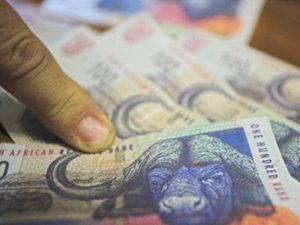
[miningmx.com] – ANYONE watching South Africa’s resources sector this month may have been surprised at the extent of the economic inactivity with perhaps the sole momentum being the chilly wind of isolation propelling the tumbleweed.
Project finance, refinancings, and merger and acquisition activity seems to have all but dried up; no doubt informed by market volatility which saw the iron ore price earlier this month lose 25% in a week – 10% in one day – before retracing some of its losses.
The evidence of torpor is everywhere.
The refinancing of Waterberg Coal Company’s thermal coal project in the Limpopo province has been in stasis since October last year while the nearby Boikarabelo coal project, owned by Australia’s Resource Generation, appears on permanent hold.
The sale of Anglo American Platinum’s (Amplats’) Rustenburg and Union mines is a well documented problem for owner Anglo American which can’t dispatch the assets for a decent fee.
In the case of Impala Platinum, however, it pulled out of the sale of its Marula mine altogether owing to a lack of interest, or decent bids, or both.
Coal of Africa (CoAL) pulled the plug on the sale of its Mooiplaats colliery to a private investor which couldn’t raise the cash, while Amplats was so similarly spooked by the sluggish platinum price that it declined to provide its empowerment partner, Atlatsa Resources, with the R422m it needs to keep it liquid. Talks are continuing.
Paul Miller, a resources banker at Nedbank Capital, says South Afroca has sterilised significant pools of international capital ever since the Marikana atrocity in which striking miners were shot dead by police.
Whilst this clearly horrified international investors, he also believes banks have been distracted by the slide in metal and mineral prices.
“Inevitably most banks have at least some distressed projects on their books so senior managerial time is spent sorting out the transactions they already have rather than chasing new deals,’ he said.
Among the most high profile of the distressed companies in need of refinancing is Lonmin.
The company recently gave up R1bn in market value in a single day as investors jumped ship amid speculation that the company will be forced to issue shares for cash in order to pay for growth and sustaining capital needs.
Lonmin faces a refinancing in less than 10 months when a $400m revolving credit facility matures, and two months after that when three R660m facilities ($170m at $/R of approximately 12/1) fall due.
A dilutive equity issue comes at exactly the wrong time for Lonmin as the share is in free-fall – down more than 40% in 30 days – and would mean that the company has diluted shareholders every three years since it raised $460m in 2009 and $800m in 2012.
“We don’t believe Lonmin’s balance sheet is in bad shape. Every effort at the company is directed at protecting the balance sheet, even to the extent of under-investing in the asset base,” said Leon Esterhuizen, an analyst for CIBC Capital Markets.
“This, we believe, is effectively borrowing from Peter to pay Paul, as the under-investment in the asset base will eventually come back to haunt the company on many fronts – one of which will ultimately be the balance sheet,” he said.
Lonmin announced earlier this year that as of March 31, it had net debt of $282m consisting of debt of $342m and cash of $60m.
The recent slide in the value of Lonmin shares was reportedly triggered by a negative sounding report by UBS which said that any lift in the prices of platinum group metals – palladium and platinum among others – would be used by Lonmin to service capital projects which it had been currently ignoring so it could stay alive.
“We previously expressed higher PGM prices to give Lonmin the momentum to simultaneously increase earnings and restart capex projects, however, lower prices for longer makes this prospect more challenging,’ the bank’s analysts said.
“On our updated PGM forecasts, valuation is stretched and we downgrade Lonmin to sell,’ it said.
That was on July 9 when the company was valued on the Johannesburg Stock Exchange at R12.5bn. It subsequently shed R4.2bn over the next seven days.










